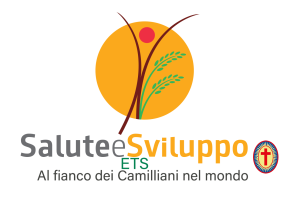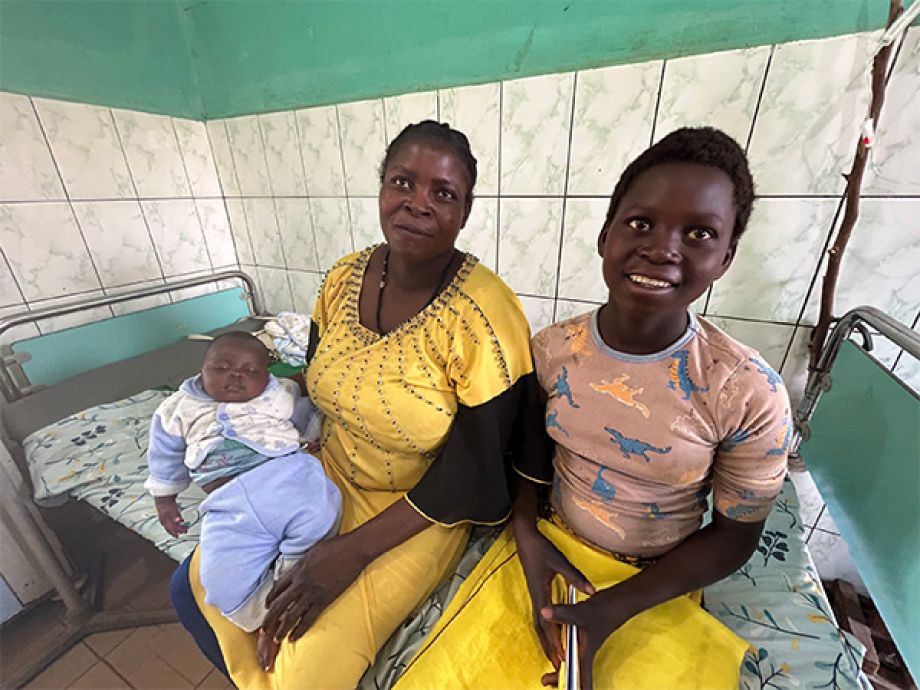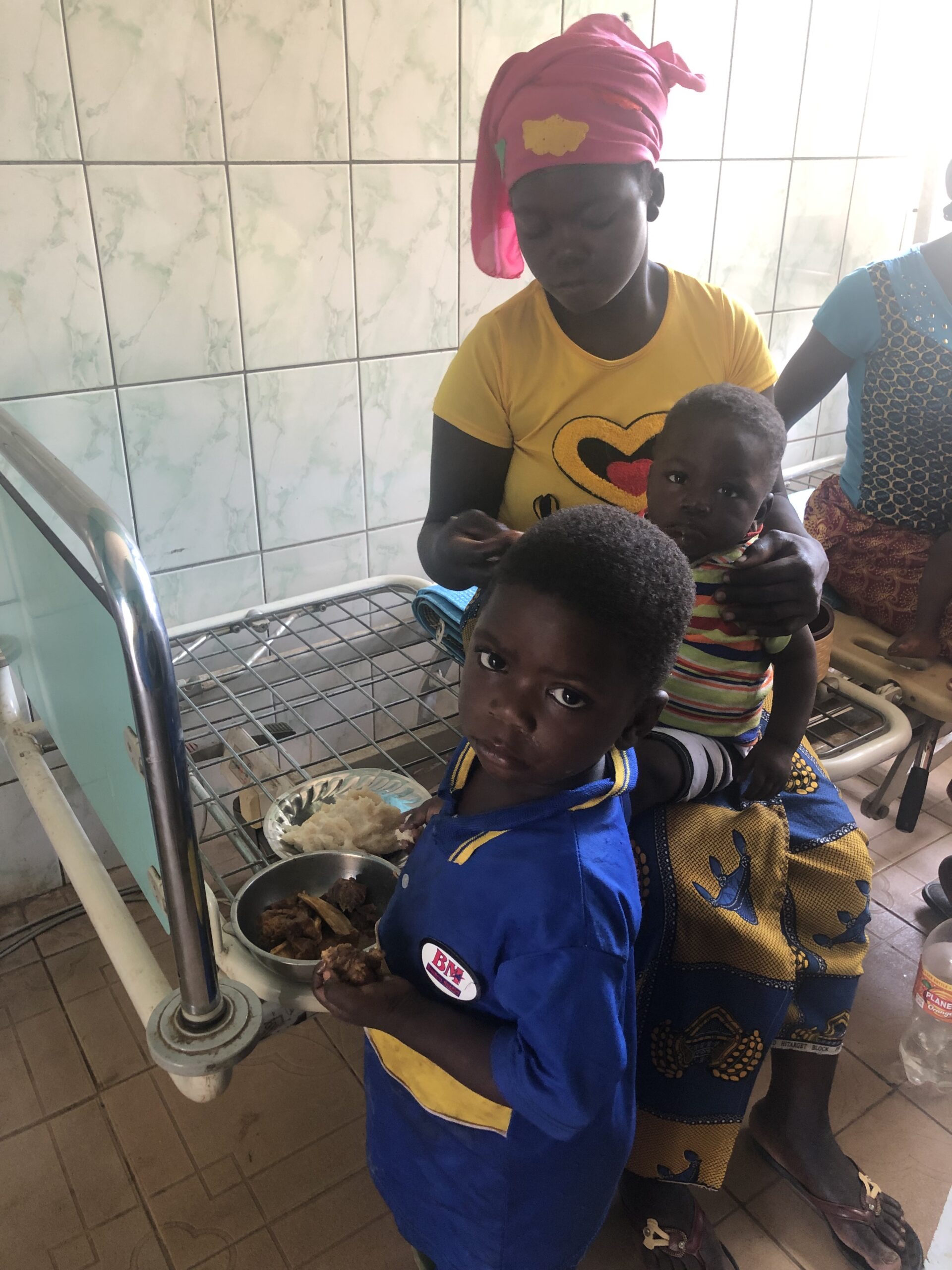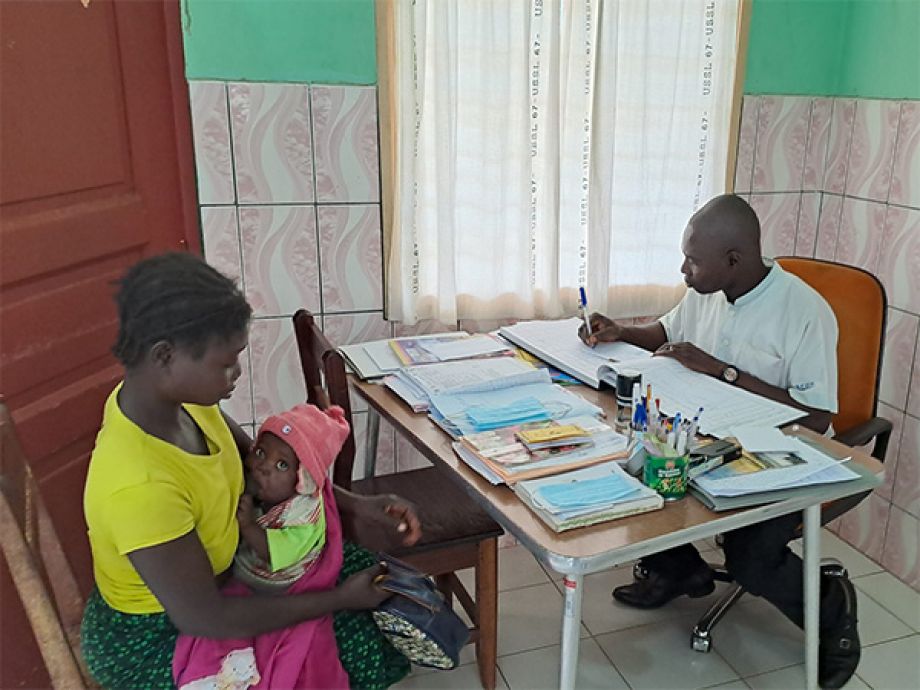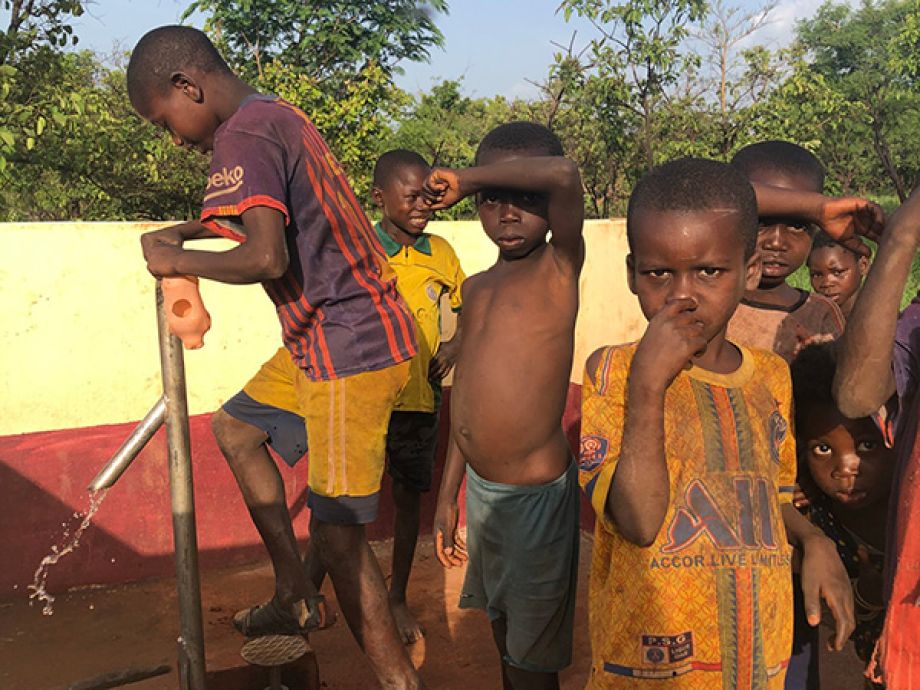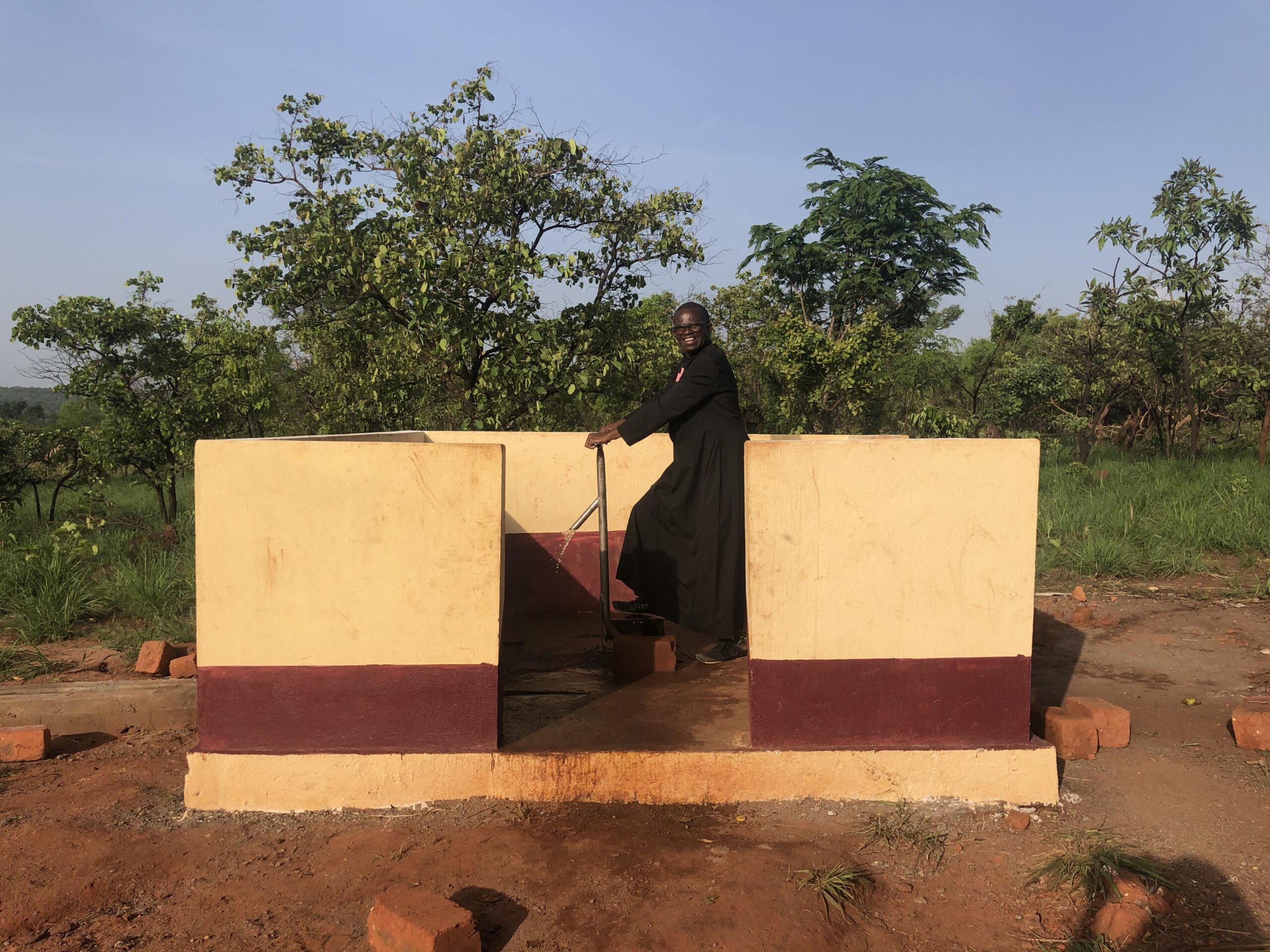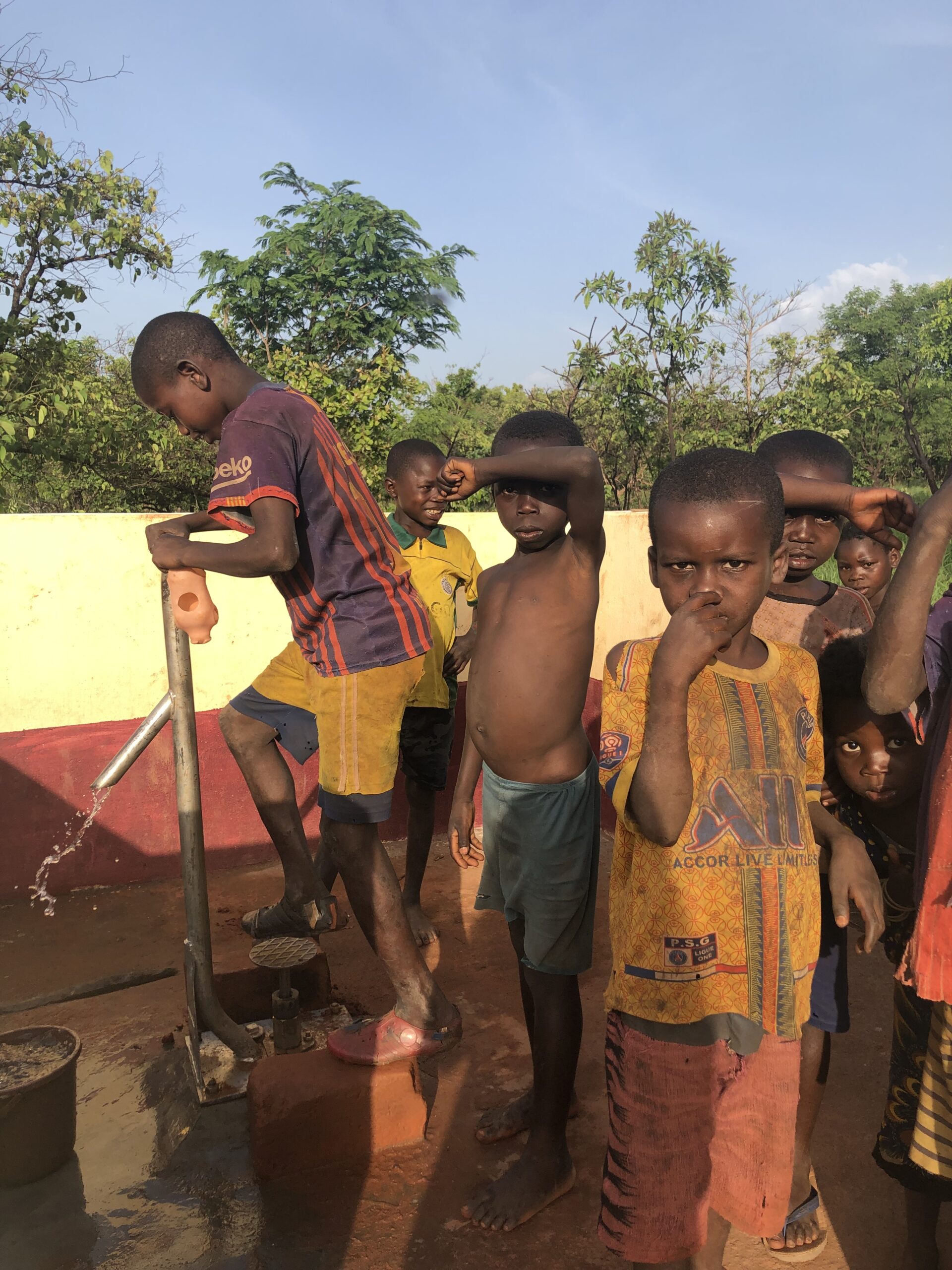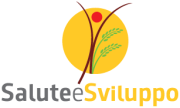HEALTH AND NUTRITION IN BOSSEMPTÉLÉ
“Health and Nutrition for the Vulnerable Population of the Sub-Prefecture of Bossemptélé’ has been a project that we have told you about many times, recounting all the milestones that we have gradually achieved. The project, part of the ‘Emergency Initiative to Support the Vulnerable Population in the Central African Republic’, was funded by the Italian Agency for Development Cooperation (AICS) and started in September 2021.
The interventions were concentrated in Bossemptélé, the town where the John Paul II Hospital – the health hub of the entire region – is located, and in the surrounding 75 km. We are in the Central African Republic, an endemically poor country, where many of the basic services are the preserve of a few, while the majority of the population suffers from precarious and insecure conditions, both health and food. For some years now, moreover, rebel groups have been making the country even more unstable, carrying out violent acts and frightening the already hard-pressed population.
Anche noi di Salute e Sviluppo – nel corso di questo progetto – abbiamo dovuto affrontare questa situazione, che ha rallentato i lavori, rendendoli più difficili e pericolosi. Despite this, we were able to achieve most of the goals we had set ourselves, including the construction of an emergency room for the John Paul II Hospital. Before our intervention, the hospital did not have the possibility to accommodate the most serious patients in a suitable room, now the emergency room has been completed, both in terms of structural construction and equipment. During this year in which construction work proceeded, the hospital was nevertheless able to see more than 9,000 patients, of whom about one third were admitted to receive the right treatment.
Another deficiency we had identified at an early stage concerned the hospital’s ability to guarantee the necessary meals for in-patients: most of those arriving at the facility have a severe state of malnutrition and need to re-establish a proper diet. In the course of this project, we built a kitchen adjacent to the hospital premises, which can offer three meals a day to all patients. Despite the fact that the structural work has only just been completed, a temporary kitchen has been set up since the start of the project, which has managed to provide three full meals a day for more than 1600 patients.
In order to increase the capacity of the John Paul II Hospital to adequately meet the local population’s demand for care, we decided to start a training programme for health personnel. Thanks to this initiative, 38 workers specialised in obstetrics, ophthalmology, laboratory techniques and maintenance of medical equipment were trained.
In order to provide widespread access to care also in the rural areas surrounding Bossemptélé, we rehabilitated, and in some cases built from scratch, the postes de santé located in some villages within the sub-prefecture. Before our arrival, these facilities were unsafe, with severe structural problems and without any furniture or machinery useful for first aid. During the year, we renovated, furnished and equipped the poste de santé of Gbawi (40 km from Bossemptélé), Bodangui, (10 km), and Bombalou (45 km) with sanitary materials, and we built a new poste de santé in the village of Yangoro, 15 km from Bossemptélé. In addition, we have trained more than 30 workers who will ensure an efficient health service by manning these postes de santé. In addition to each of these facilities, a well was also rehabilitated or constructed to provide drinking water, not only to the poste de santé, but also to the entire population of the corresponding village. Thanks to some budget balances, we were able to rehabilitate an additional well in the village of Boyaram. In total, more than 21,000 inhabitants have access to drinking water.
In addition to these villages, there are many others that, not having a poste de santé and being far from Bossemptélé, remain uncovered in terms of health. To solve this problem, we activated and strengthened the mobile clinic service, which – during the course of the project – was able to visit more than 27 villages, providing first aid to the local population. The mobile clinic also started awareness-raising meetings focusing on different health topics, and managed to involve more than a thousand people. In recent months, the climate of instability in the country has worsened: armed rebel groups have targeted large areas, including part of the area where the mobile clinic operates, some of which have been forced to flee. Due to this situation, it was not possible to visit many villages and proceed with all the previously planned activities.
Despite these difficulties, which caused several slowdowns, the project recorded positive results: 14% more of the local population had access to health services, 25% more had access to drinking waterwhile malnutrition dropped from 40 to 38 per cent. The facilities we have built and the activities we have initiated will continue to be a valuable aid for the locals, who will finally have access to adequate health services of a higher standard.
This article was produced within the framework of the project Health and Nutrition for the Vulnerable Population of the Subprefecture of Bossemptélé AID 05/RCA/12049/2021 funded by the Italian Development Cooperation Agency. The contents of this publication are the sole responsibility of the author and do not necessarily represent the views of the Italian Development Cooperation Agency. The Italian Development Cooperation Agency is not responsible for information that is considered erroneous, incomplete, inadequate, defamatory or in any way reprehensible.
